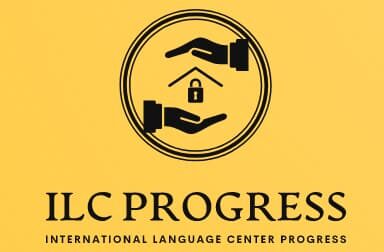In today’s ever-evolving job market, translators possess a unique skill set that opens doors to many career opportunities. While translation is a rewarding profession in its own right, diversifying your skill set can broaden your horizons and make you more resilient in the face of changing demands. This article will explore various career paths beyond traditional translation and how you can leverage your linguistic expertise to excel in them.
The Multifaceted World of Language Professionals
Before we dive into alternative career options, it’s essential to acknowledge the versatility of language professionals. As a translator, you possess much more than the ability to convert words from one language to another. You have a deep understanding of cultures, impeccable communication skills, and a keen eye for detail. These qualities are highly sought after in numerous industries.
Localization Specialist
As businesses expand globally, they require professionals to adapt products, services, and content to specific regions. Localization specialists ensure that everything, from software interfaces to marketing materials, is culturally and linguistically tailored to the target audience. You can become an invaluable asset to companies seeking to thrive in international markets by honing your localization skills.
Interpreter
Interpreters are the bridge between individuals who speak different languages. Whether it’s in diplomatic settings, business negotiations, or healthcare facilities, interpreters facilitate effective communication. This role demands quick thinking, exceptional language proficiency, and the ability to maintain composure in high-pressure situations.
Beyond Language: Expanding Your Expertise
While linguistic prowess is your foundation, remember to underestimate the power of complementing your language skills with expertise in other areas. This combination can set you apart in competitive job markets.
Content Creation and Copywriting
Translators with strong writing skills can transition into content creation and copywriting roles. Businesses constantly seek professionals who can craft compelling and persuasive content for their target audiences. Your linguistic finesse can help you create engaging marketing materials, website content, and more.
Language Teaching and Coaching
If you are passionate about sharing your language knowledge, consider becoming a teacher or coach. You can work in schools language institutes or even offer private lessons. Teaching allows you to impart your expertise and provides a stable income source.
Embracing Technology: Staying Ahead of the Curve
The digital age has significantly changed how we work and communicate. Embracing technology can open up new doors in your career journey.
Machine Translation and AI
With machine translation and artificial intelligence advancement, there is a growing demand for professionals who can work alongside these technologies. Translators can become machine translation post-editors, ensuring the accuracy and fluency of automated translations.
Language Technology Specialist
Language technology specialists work on developing and improving language-related software and tools. Your linguistic background equips you with a deep understanding of language nuances, making you well-suited for roles in natural language processing (NLP) and language technology development.
Networking and Professional Development
To successfully transition into an alternative career, networking and continuous professional development are crucial.
Join Professional Associations
Consider joining professional associations relevant to your chosen career path. These associations can be invaluable for networking and staying updated on industry trends:
- Association of Language Companies (ALC): ALC is an excellent choice for translation, localization, and language services professionals. Membership offers access to a network of industry experts, conferences, and resources for business development.
- American Translators Association (ATA): ATA is one of the most significant associations for translators and interpreters. It provides opportunities for professional development, certification, and networking with peers.
- Globalization and Localization Association (GALA): GALA focuses on the global content delivery industry. It’s an excellent choice for localization, translation technology, and language services professionals.
- Society for Technical Communication (STC): If you’re interested in technical writing or content creation, STC offers resources, networking events, and educational opportunities.
Continuing Education and Skill Enhancement
Investing in continuous learning and skill enhancement is essential for career growth:
- Online Courses: Platforms like Coursera, edX, and LinkedIn Learning offer various courses and certifications. For language technology specialists, consider natural language processing (NLP), machine learning, and artificial intelligence courses.
- Language-specific Workshops: Attend workshops or seminars on your target language(s). These events can help you stay updated on language trends and maintain linguistic proficiency.
- Conference Participation: Attend industry-specific conferences and seminars. Not only do these events provide networking opportunities, but they also offer insights into the latest technologies and practices in your chosen field.
- Mentorship Programs: Seek out mentorship opportunities. Experienced professionals can provide guidance, share their experiences, and help you navigate your new career path.
Online Communities and Forums
Engage with online communities and forums related to your field:
- LinkedIn Groups: Join LinkedIn groups dedicated to your industry or profession. These groups often host discussions, share relevant articles, and facilitate connections with like-minded professionals.
- Forums and Discussion Boards: Participate in online forums and discussion boards where professionals in your chosen field congregate. Websites like ProZ, TranslatorPub, and Reddit’s r/Translation offer discussion and knowledge-sharing spaces.
- Social Media: Follow relevant industry leaders and organizations on social media platforms like Twitter, Facebook, and Instagram. Social media can be an excellent way to stay updated on industry news and connect with peers.

Professional Conferences and Workshops
Regularly attend industry-specific conferences and workshops to expand your knowledge and network:
- Networking Opportunities: Conferences provide excellent opportunities to meet potential employers, collaborators, and mentors. Attend social events and engage in conversations with fellow attendees.
- Stay Informed: Conferences often feature keynote speakers and breakout sessions highlighting your field’s latest trends and innovations. Make the most of these learning opportunities.
- Presentations and Panels: Consider presenting at conferences or participating in panel discussions. Sharing your expertise can boost your credibility and visibility within the industry.
By actively participating in professional associations, continuing your education, engaging with online communities, and attending conferences, you can effectively network and develop professionally in your chosen career path beyond translation. These strategies will help you stay current in your field and open doors to exciting opportunities and collaborations.
Conclusion
While translation is a rewarding and essential profession, it’s important to recognize that your language skills can unlock many career opportunities. By diversifying your skill set, embracing technology, and constantly expanding your knowledge, you can ensure a fulfilling and successful career that evolves with the ever-changing job market. So, don’t hesitate to explore the world beyond translation — your linguistic expertise is your passport to endless possibilities.
This article only scratched the surface of the exciting career avenues available to language professionals. The key is to remain adaptable, curious, and proactive in pursuing your career goals. Whether you become a localization specialist, content creator, or language technology expert, the journey beyond translation is filled with growth, challenges, and endless rewards.
